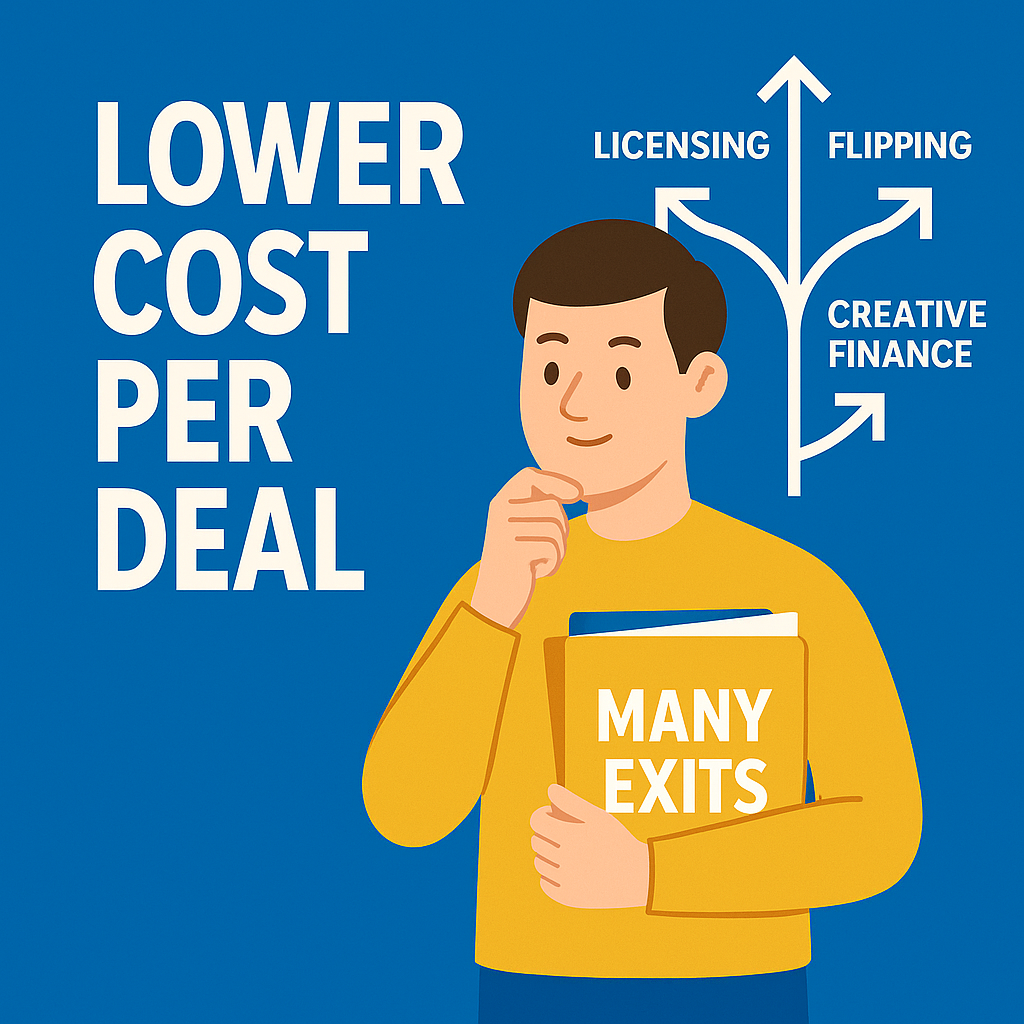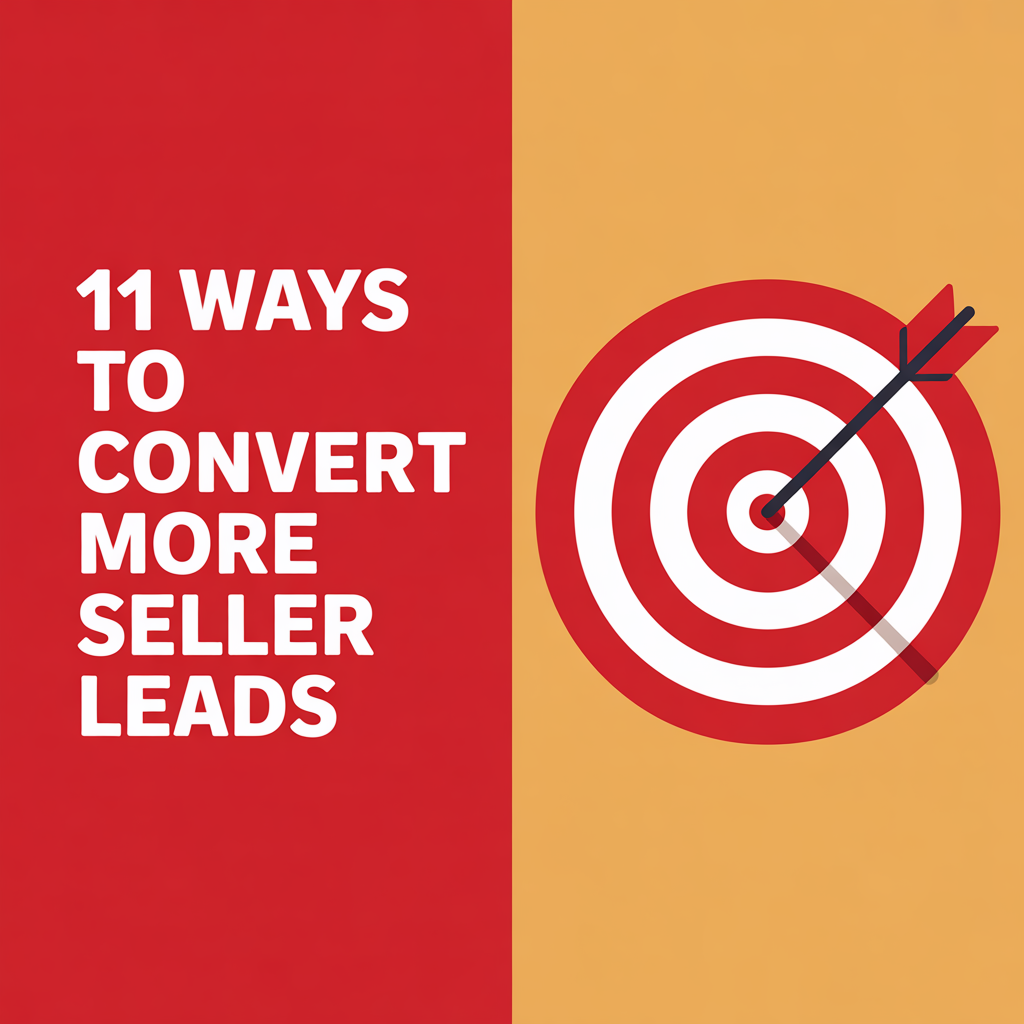Are Motivated Seller Campaigns Leaving Facebook?

Facebook is rapidly becoming one of the best platforms to establish your brand in your neighborhood and generate a consistent flow of motivated seller leads every month. But recently, Facebook has been tightening its advertising platform to give its users more transparency. To do this, it has removed third-party data, added new policies to custom audience lists, and allowed users to view how advertisers targeted them.
These changes are wonderful news for Facebook users. However, this modification necessitates a new strategy for motivated seller campaigns. What do real estate investors need to know about these changes? How could this impact your business?
Basics About Facebook and Motivated Sellers
What Is a Motivated Seller?
In real estate listings, the term motivated seller can have numerous meanings. However, the phrase usually denotes a buyer anxious to swiftly seal the transaction on a home.
People use Facebook to check the news, keep up with friends and family, and look at interesting content. Statista.com estimates that there are over 214 million daily active users on Facebook. The beauty of Facebook is that you can choose who sees your ads and follow up with them on social media. Because your prospect never has to leave Facebook and the opt-in procedure is smooth, Lead Ads are effective ads for motivated seller leads. A Facebook Lead Form that has been pre-populated with the data of the Facebook user appears when a Lead Ad is clicked.
What Has Recently Changed With Facebook’s Real Estate Advertising Policies?

Facebook is updating its guidelines for how advertising can utilize its platform. Specific targeting choices are eliminated for some ad categories to prevent discrimination. These categories, formerly known as HEC and now known as Special Ad Categories, specifically affect three areas: housing, employment, and credit.
Before the modification, advertisers could serve their ads to particular audiences by using a wide range of targeting criteria, such as age, gender, zip code, interests, and more. The result was a more focused, defined audience, which ultimately boosted the odds of conversion.
How Does It Work, and How Does It Impact Motivated Seller Campaigns?
Facebook asks advertisers to identify the source of their custom audience list. The source of the audience list now must be specified when uploading a custom list to Facebook. The advertiser must also comply with Facebook’s custom list rules and policies. You have the following data origin choices on Facebook:
- Directly from customers
- Customers and partners
- Directly from partners
It’s a start to give Facebook users more information. We don’t anticipate this change to result in significant pushback for the advertiser. Facebook custom audiences will still be around and offer a valuable technique for focusing on motivated sellers.
The second change is that Facebook is getting rid of all third-party information used to target audiences, including income and property ownership. Since Facebook stated that it was eliminating third-party data from its advertising network, all financial data, including income, home prices, and other demographics and habits, are also being removed. This data set includes information like likely to move or unlikely to move.
Because of this modification, real estate investors are now required to rethink their strategies for their Facebook campaigns for motivated seller leads and identify new target markets. But with the help of real estate digital marketing experts, you can still close more leads.
Why Did Facebook Alter Its Ad Targeting?

The shift began in March 2019 when the Department of Housing and Urban Development (HUD) sued Facebook for breaking the Fair Housing Act. According to HUD and several other organizations (including the ACLU and NFHA), Facebook’s ad targeting tools limited the housing options available to some protected classes. It enabled advertisers to target ads based on age group, location, education level, and other factors.
Does the Organic Reach of Facebook Still Work?

Free traffic was formerly Facebook’s biggest selling point, but that has changed. The advice that posting quality material on Facebook will drive many free visitors to your real estate investing company is outdated. Paid reach is growing more prevalent on social media, and less content is shared for free, qualifying as organic reach.
Algorithms now determine whether users are likely to be interested in a post or ad in place of Facebook’s previous system of organic reach. In the past, your posts would be seen by a larger audience, but now, you must start an advertising campaign to reach a new audience. This new system is not always bad because you can choose who sees your content and advertisements based on intricate Facebook algorithms on user interaction. You can put your message in front of those more likely to be interested in your offer.
How Can I Adapt My Selling Strategy to These New Restrictions?

In light of these modifications, there are some best practices and workarounds that we advise. These techniques can help you utilize alternatives to approximate the targeting options that have been eliminated. These methods can also help your advertising continue to receive qualified clicks and have a reasonable cost per click despite targeting restrictions.
Use a Cost Per Click (CPC) Model

On Facebook, you can choose a cost-per-click (CPC) or a cost-per-thousand-impressions (CPM) plan. Because of the targeting restrictions, your ad may still be delivered to a broader population with some changes, leading to more impressions. It can be very beneficial to convert to a CPC model. You’ll just be charged for ad clicks rather than how many people see it, which should lower your cost per lead.
Enhance the Copy and Design of Your Ads

Because other promotions compete with yours, your ad needs compelling messaging that will appeal to qualified prospects. What you are advertising must draw attention with a clear message. The available ad space is constrained, so stick to powerful language and straightforward, excellent property photographs.
Target Your Interests Creatively
You can target pertinent interests that will provide a qualified audience for your advertisement, even though many appeals have been eliminated from the targeting possibilities. Check the remaining interests to see whether any would attract your target market. Even with a minimum targeting radius of 15 miles, you can effectively target by location. A strategy that can work for your location is to place your target in a rural or sparsely populated area, leaving the area you want to target on the edge of your circle.
Use the Special Ad Category to Close Deals

Targeting your advertising as part of your real estate marketing strategy is the key to obtaining real estate leads on Facebook. You can accomplish high-level targeting with Facebook Ads by selecting the Special Ad Category option, allowing you to engage with the ideal customers at the perfect time. Check out our successful deals!
However, there are limitations on what Special Ad Categories may achieve. Restrictions on Special Ad Categories were placed to guard against social injustices, inequities, and political corruption. Review Facebook’s guidelines for social and political topics advertising carefully to comprehend and stay clear of limits on your ads.
As a real estate agent, you can still target ads by:
- Geographical area: Even with restrictions, you can still target customers according to their geography. Instead of focusing on specific zip codes, you can utilize a pin-drop tool that establishes a 15-mile radius.
- Interests: With the help of this technology, you can still target people based on their interests, such as “purchasing a new home.”
Why Are There So Many Types of Advertising?

Do advertising campaign objectives differ enough to require a wide range of solutions? Generally, they don’t, but they may vary in a specific way. Ad placement and budget are the primary reason for these differences. Although the framework is essentially the same, placement is crucial to the campaign’s success.
Additionally, the pricing structure varies depending on the type of ad. Conversion campaigns are billed based on the number of forms filled out, boosted posts are billed for clicks, and campaigns that send people to your website are billed based on impressions.
What Else Can You Do With Facebook As a Real Estate Investor?

You can create an ad set, or a collection of settings, on Facebook, which you can use across many campaigns. This feature allows you to specify generic campaign parameters rather than adjusting them for every ad. Read our customer testimonials to know how we helped people get more leads.
Bring More People to Your Event

Facebook event ads are crucial for real estate investors. They assist you in promoting an event to a sizable audience. You can advertise in-person events like open houses and virtual events like webinars, live broadcasts, or virtual Q and As.
Actively Promote Your Page

Don’t underestimate the value of Facebook Ad Goals campaigns to Promote Your Page to reach your overall business goals. With this kind of advertisement, you’re fishing for likes. Gaining more likes on your page can effectively broaden your audience.
Bring Traffic to Your Website

The purpose of a motivated seller campaign is to boost website traffic. While this goal is comparable to what you want from a Google Adwords campaign, the method of obtaining traffic is different. When using Facebook ads, you create and target a specific audience when choosing the Ad set instead of using keywords to target users of search engines with Google Ads.
Improve Your Website’s Conversion Rate

When you discover the conversion tracking capabilities of these Facebook ads, they can quickly become your favorites. They are intended for real estate investors who wish to create leads using a form on their website. In essence, this campaign can bring visitors to your website with a highly accurate method of tracking conversions. The Facebook advertising features a call-to-action button that will direct readers to a specific landing page on your website, such as the page that allows you to redeem your offer. When you run a campaign, Facebook lets you set up a Meta Pixel to monitor user activity.
Final Verdict: Are Campaigns for Motivated Sellers on Facebook Disappearing?
Despite recent changes, Facebook’s real estate advertising is more popular than it used to be. Even while some targeting is disappearing, Facebook is still used by millions of people every day, and there is no better method to connect with people based on their demographic and interest profiles. The COVID-19 pandemic significantly affected the 12% increase in Facebook users in 2020 versus 2019, when many had previously predicted flat or single-digit usage growth.
Facebook advertisements should be carefully studied as part of a planned marketing mix because they can be powerful and required to reach prospective customers. However, the rise in popularity has made them less cost-efficient, a trend that has persisted for years.
If you want more motivated seller leads, we are the company to contact. We use Google and Facebook to help investors swiftly grow their real estate portfolios by producing high-quality leads from motivated home sellers. We have a deeper understanding of real estate than most other marketers.






